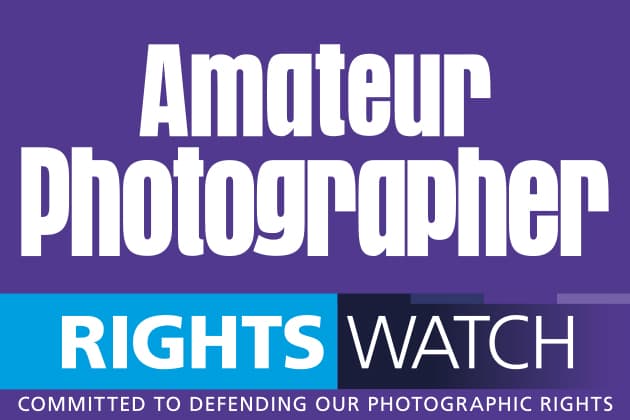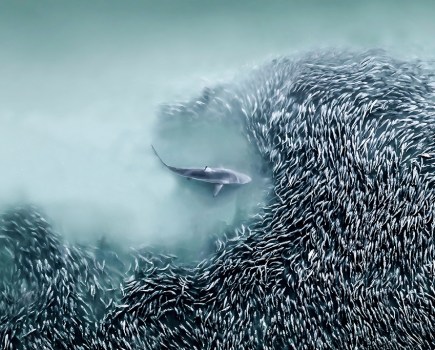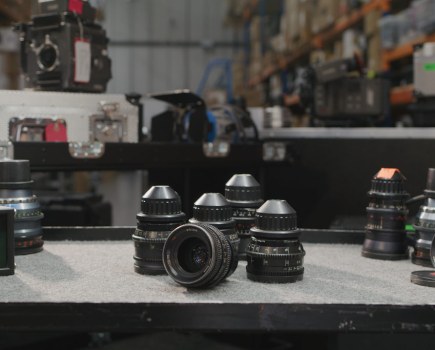 Taking ‘unwanted’ photos of women has been included in a list of examples of misogynistic behaviour that Nottinghamshire Police now treats as a hate crime.
Taking ‘unwanted’ photos of women has been included in a list of examples of misogynistic behaviour that Nottinghamshire Police now treats as a hate crime.
‘Examples of this may include… use of mobile devices to send unwanted or uninvited messages or take photographs without consent or permission,’ the force said in a statement last month.
Nottinghamshire Police defines a hate crime as ‘simply any incident, which may or may not be deemed as a criminal offence, which is perceived by the victim or any other person as being motivated by prejudice or hatred’.
An Amateur Photographer (AP) reader was quick to express alarm at the development. The Royal Photographic Society (RPS) says it was also contacted about the matter by one of its members. Yet, at the time of writing, Nottinghamshire Police said it had not received any reports of misogynistic hate crime related to photography.
Do law-abiding photographers have anything to fear?
Yes, according to AP reader Richard Palmer from Hexham, Northumberland, who sees the new policy as a threat to a photographer’s right to take pictures in a public place, and ‘an assault on the freedoms that uphold our democracy’.
In an email to AP, sent the day after the police announcement on 13 July, Palmer wrote. ‘Once again, it appears that photography and photographs are being seen in some way [as] an assault on people.’ The policy, he claims, gives ‘credence to the idea that taking an image is harming someone’.
Nottinghamshire Police says there has been no change in the law, but rather a change in the way the force records such incidents.
AP asked the force to explain how its policy would be interpreted and put in place.
In response, Nottinghamshire Police insisted its officers will not target legitimate street photography.
However, a spokesperson said that should a photographer persist in taking ‘unwanted photographs’ of a woman, it would consider treating such behaviour as ‘verging on harassment’ – regardless of whether they had first been spoken to by an officer – depending on the circumstances.
The force added: ‘Ultimately, it comes down to what a reasonable person would understand to be harassment.’
The law on harassment
According to legal guidance issued by the Crime Prosecution Service, the offence of ‘harassment’ includes ‘causing alarm or distress’. It falls under Section 2 of the Protection from Harassment Act 1997.
The Nottinghamshire Police spokeswoman stressed: ‘We are by no means stopping people from taking photographs in their day-to-day life – however we aim to give women the confidence to report any unwanted or intrusive photography which may be degrading of humiliating for the woman.’
Pressed to clarify the policy, the force said that ‘should a photographer take an unwanted photograph of a woman which she felt intimidated by and reported, then – provided no criminal offence had taken place – the photographer would not be detained (as the usual powers around criminal offences would not apply).’
The police spokesperson continued: ‘However, depending on the circumstances, the officer would generally inform the photographer about the impact of their actions – should the photographer persist in taking unwanted photographs of the women, we would consider this to be behaviour verging on harassment and [we] could potentially investigate further.
‘It’s important to note that, when we refer to unwanted photography, we are largely talking about explicit photography taken of women without their consent, rather than street photography.
‘However, we want to give women the confidence to report any behaviour that intimidates them or makes them feel uncomfortable and, as such, we do not supply a list of “acceptable” and “unacceptable” behaviour or types of photography.
‘Ultimately the decision lies with the victim and their perception of the behaviour.’
Police say they will investigate any such incident ‘proportionately’, adding: ‘There is a really clear line between a photo [taken] in a legitimate way and taking photos that are intimidating.’
Finding the correct balance
However, street photographers have reasons to be cynical about such reassurances, given the abuse of photographer rights in years gone by at the hands of police and private security officials that sparked groundbreaking campaigns by AP and other photography organisations.
RPS director general Michael Pritchard told AP: ‘Nottinghamshire Police’s new policy is unlikely to affect photographers.
‘But, it’s really not clear from the police statement how they plan to deal with complaints, what would constitute a justified complaint, or what sanctions the police could apply.’
‘Until there is greater clarity photographers, AP and the RPS should remain vigilant about any creeping restrictions on photography and ask the police to justify their actions if they seem heavy-handed or unreasonable.’
Pritchard added: ‘Photography in public spaces remains lawful and it is important that this is defended, while at the same time ensuring women continue to be free from attention they might consider threatening.’
The force says it is the first in the country to recognise misogyny as a hate crime. When announcing the plans, chief constable Sue Fish said last month: ‘I’m delighted that we are leading the way towards tackling misogyny in all its forms.
‘It’s a very important aspect of the overall hate crime work being conducted and one that will make Nottinghamshire a safer place for all women.’
Selected officers and staff were given three months training on misogyny hate crime. This was due to be completed by the end of July.








